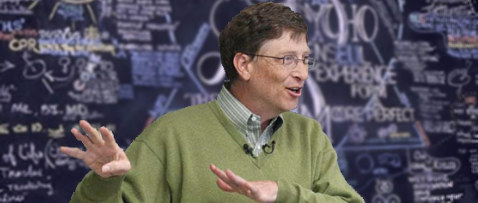Gates discusses next generation of technology with students

Former Microsoft chief executive, Bill Gates, spoke to the University of Waterloo on Saturday to discuss the future of technology, the web and desktop applications, after last visiting the university in 2005.
Oh the joy. Unfortunately I couldn't be there to meet him after the lecture as I was far too enthralled by paint drying on a wall, and nursing a world-class hangover.

Nevertheless, he gave his insight as to where the world will be in a decade from now, describing the previous decade as "the first digital age". Although Gates risked an awful lot when dropping out of Harvard to set up Microsoft, ultimately his goal of reaching higher philanthropic efforts have been reflected in the world's media for years.
The main punchline was the ever developing world we live in. With the Internet expanding and the chances of new possibilities opening up, the world we see today will gently transform into a eutopia of technological improvements.
Albeit his perspective was of a Microsoft oriented one, he described such developments as surface computing, blending human interaction such as touch and speech into a new form of unified computer interfacing.
According to one website, he was quoted in saying:
"We want to do everything we can to equip a new generation of technology leaders with the knowledge and tools they need to harness the magic of software to improve lives, solve problems and catalyze economic growth."
My perspective is this. He spoke from the heart and he gave a powerful insight into what we already semi-know. The Internet is changing, for the better and in some areas for the worse. However it seems his eutopia dream of an interconnected set of worlds within this wider globe we live in to become one, is not too far away.